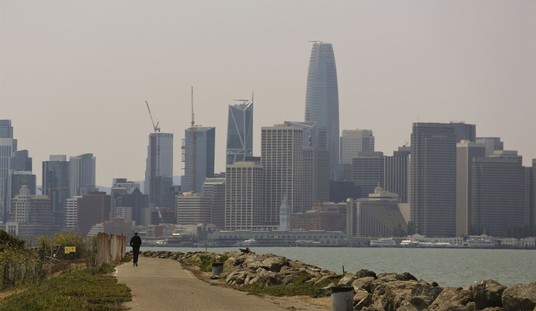Rarely has the New York Times editorial board sounded as clueless as it does today on the subject of municipal wireless Internet access. After acknowledging that municipal wi-fi turned into a more expensive boondoggle than anyone predicted, they demand its continuance — and that Earthlink, among others, offer it for a loss. In doing so, they implicitly argue that personal Internet access has become a right and that government must provide the solution:
For a while, many American cities, caught up in a tide of technological and fiscal optimism, promised to try to make Internet coverage available to all by making it citywide, wireless and low-cost or even free.
That has proved to be harder than it seemed at first. EarthLink, an Internet provider that was partnering with Philadelphia, has pulled out of a much-heralded project there, and other service providers are rethinking similar projects.
EarthLink is calling it a change in strategic direction. What that phrase means, simply, is where’s the profit? It is a reasonable question. But for the people who have been left without Internet service as municipal wireless plans have collapsed, there are no reasonable answers, only an all-too-familiar barrier between them and the information age.
The neighborhoods that most need low-cost, public wireless service now find themselves largely dependent on Internet access through public libraries. This may not sound like a terrible thing, but have you seen what’s happened to the budgets — and the operating hours — of public libraries?
Well, excuse me, but when did Internet access companies become public utilities? Earthlink offers its services for a profit, as does every other access portal. If it can’t find a profit, then it won’t operate in those markets. Arguing that Earthlink should follow through on poorly-conceived projects without regard to profit means that they will eventually go out of business altogether, or will have to hike prices to all of their other customers to subsidize an illegitimate government mandate. If Philadelphia wants to provide no-cost Internet access, they don’t need Earthlink to do it; they can pay for it themselves, with tax dollars, and face the wrath of their electorate for the costly nature of the enterprise.
The Times whines about access times for Internet users at public libraries. However, that service gets provided for free. It’s a better option than no access at all, and it costs the end users nothing. That doesn’t seem unreasonable, especially since it’s not exactly like food, water, and shelter. People can and do live without constant access to the Internet, and those that can’t make investments in Internet services.
There’s something else strange about this demand for Internet service to poor neighborhoods. It assumes that the poor can afford computers at home to access the municipal Wi-Fi. It’s probably true, as Census Bureau statistics show that over 40% of the bottom quintile of American households own their homes, over 97% have televisions (and over half have two or more), three-quarters own at least one car, and 62% have cable or satellite service. Over a quarter of the poor households use cell phones, too. Given that, even the bottoom quintile of American homes could probably afford their own Internet access if they valued it over some of the other amenities, as well as affording a computer with which to use it.
The government has no requirement to supply free wi-fi to its citizens, rich, poor, or in the middle. It certainly has no business demanding that the private sector lose money or offer its services for free in order to deliver on foolish promises of Internet Nirvana. Free Internet access already exists, and if it’s not as convenient as some would like, people have a wide variety of other options — thanks to the free-market system the Times criticizes today.








Join the conversation as a VIP Member